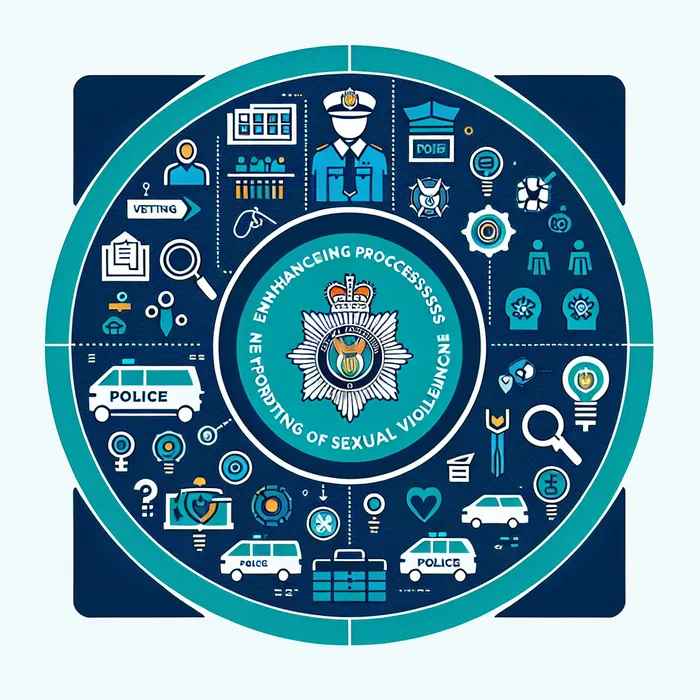Urgent calls for better vetting in SAPS amid South Africa's sexual violence crisis

Recent revelations have cast a spotlight on the screening processes of state entities responsible for safeguarding South Africa's vulnerable populations.
Image: AI Generated graphic
Recent revelations have prompted a significant scrutiny of the vetting processes employed by South Africa's state entities tasked with protecting its most vulnerable populations. Foremost among these, the South African Police Service (SAPS) is facing intense criticism due to what has been described as inadequate screening procedures for its personnel.
Build One South Africa (BOSA) has flagged alarming statistics: from SAPS's over 180,000 members, a mere 245 — or 0.14% — have been screened against the National Register for Sex Offenders (NRSO). This information comes against the backdrop of an ongoing epidemic of sexual violence in South Africa, with over 42,700 rapes reported in the 2023/24 financial year alone. As the nation grapples with this crisis, BOSA's spokesperson, Roger Solomon, did not mince words when he stated, “South Africans cannot be expected to trust law enforcement to protect them from sexual violence when SAPS has failed to even vet its own officers.”
BOSA's recommendations are urgent and clear. They are demanding mandatory NRSO screenings for all SAPS employees within the next three months, proposing that such vetting be included in recruitment, promotions, and disciplinary measures. Additionally, they urge for a public audit to review the dismissed officers over the past five years to ascertain how many had prior sexual offences.
In contrast, there are highlights of proactive measures taken by other state entities, such as the Western Cape Department of Social Development (DSD). According to DSD spokesperson Esther Lewis, all prospective public service employees undergo criminal background checks before their appointments. Since 2024, the DSD has implemented a NRSO vetting procedure for all new hires working with children. Out of 69 cases submitted for screening, 62 have returned clear, with others still under review. The DSD has a stern policy that anyone within its ranks who is convicted of a sexual offence faces immediate dismissal proceedings.

Groups are calling for proper vetting of government employees working with children
Image: Pete Linforth/Pixabay
Efforts are under way to ensure safety extends to educational institutions as well. The Western Cape Education Department (WCED) has reported a comprehensive screening process for its staff. Spokesperson Bronagh Hammond stated that 10,245 educators, 3,019 support staff, and 768 administrative personnel have undergone vetting against the NRSO. While the systems are largely in place, some documents are still pending to meet the Department of Justice's standards. The process involves obtaining a police clearance certificate from SAPS, which can take anywhere from one to four months, potentially causing delays.
Additionally, the WCED employs rigorous checks during recruitment, including identity verification, criminal profiles, qualifications, and screening against the National Child Protection Register from the DSD. However, alongside these measures, troubling reports persist. According to a statement by the National Association of School Governing Bodies, over 16,000 teachers across South Africa have criminal records involving serious offences such as rape, murder, and assault.
Meanwhile, the Department of Justice and Constitutional Development has acknowledged the urgency of making the NRSO more accessible to the public. Yet, issues surrounding confidentiality and disclosure provisions within the Sexual Offences and Related Matters Act have delayed the planned publication.
Minister Mmamoloko Kubayi has since initiated consultative processes aimed at reviewing this legislation, focusing on reforms to improve public access, particularly for roles involving children, before expanding to other employers.
